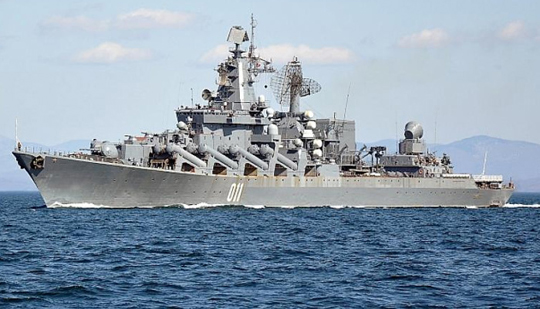New Delhi, May 6: Admiral Scott Swift, Commander of the US Pacific Fleet, who held extensive talks with Navy Chief Sunil Lanba and Defence Secretary G Mohan Kumar on Friday, categorically said that China's 'One Belt, One Road' project has caused "anxiety" in the region.

The top American Naval Commander made it clear that US is not relaxing its position on the South China Sea issue to garner China's support to ease tension in the Korean peninsula.
He also said that Trump regime hasn't changed its position on the South China Sea dispute.
Use of force and coercion by China in the region cannot be accepted at all, Admiral Scott Swift asserted.
The US Admiral's visit is intended to consolidate the growing defence relations between India and US and also to explore new avenues for naval cooperation.
The top Navy officer also discussed the upcoming Malabar Naval exercise with the Indian Navy Chief.
Addressing a four-day-long Naval Commanders Conference, Chief of the Naval Staff Admiral Sunil Lanba said the Indian Navy needs to expand its footprint to be a stabilising force in the Indian Ocean Region.
The Navy Chief emphasised on the "need for continued efforts towards modernisation, indigenisation and expanding the Navy's operational footprint so as to be a stabilising force in Indian Ocean Region."
The Indian and the US Navies cooperate with each other in terms of technical training, anti-piracy patrols, Navy to Navy staff talks, bilateral exercises such as MALABAR, as well as interact at various multilateral forums like RIMPAC. Warships from both navies call at each other's ports, which provides excellent opportunity for professional interaction and building ‘Bridges of Friendship' .
Admiral Swift was promoted to the rank of Admiral and assumed Command of the U.S. Pacific Fleet on 27 May 15. He is the 35th Commander since the Fleet was established in February 1941 with Headquarters at Pearl Harbour, Hawaii.





Comments
Add new comment